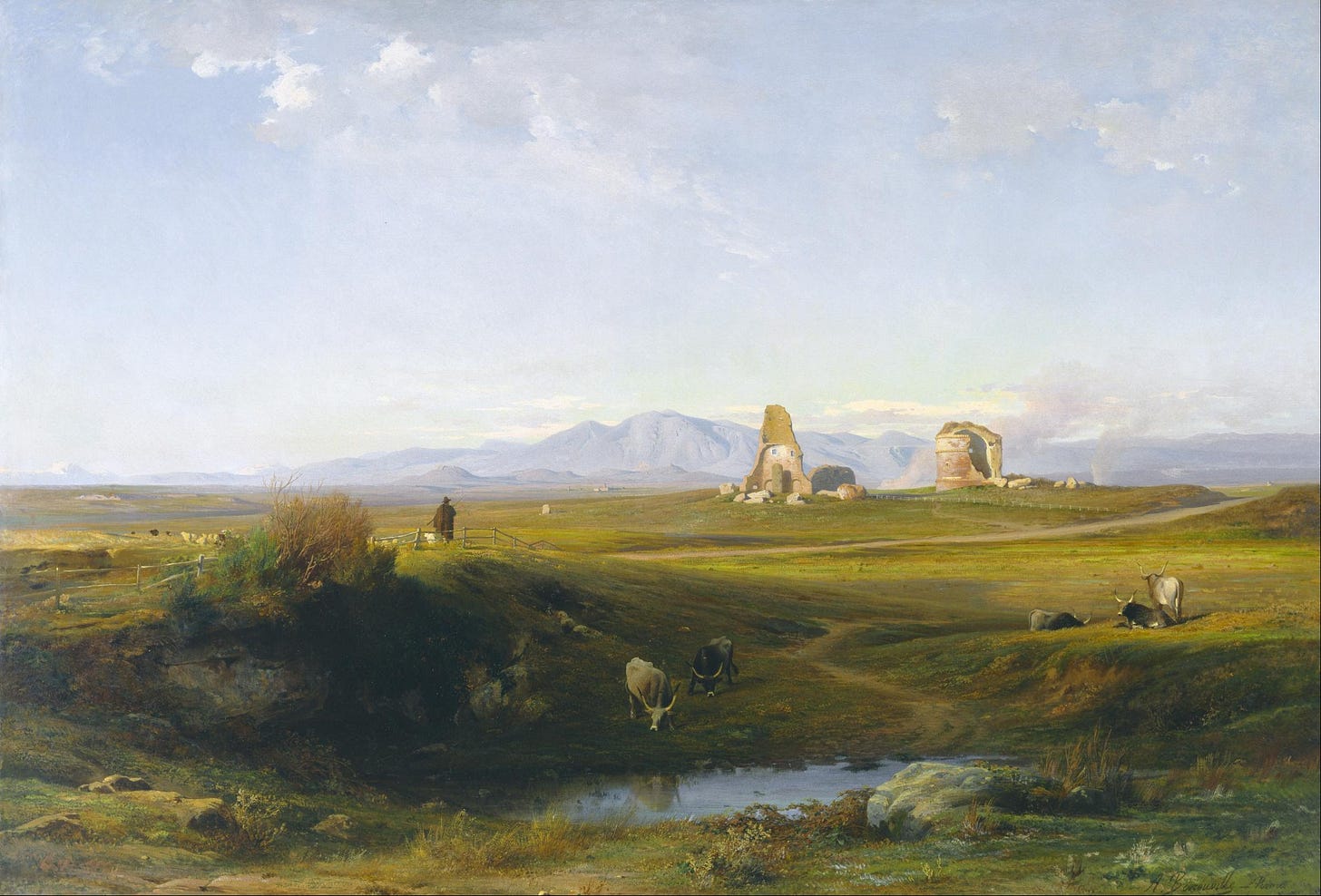
A theme runs through a lot of poetry — and through even more prose: the theme of self-help books, ads for athletic shoes, and the exhortations of cheerleaders for the active life. “Let us, then, be up and doing,” as Longfellow put it in 1838, “With a heart for any fate; / Still achieving, still pursuing,” and on and on. “Act, — act in the living Present! / Heart within, and God o’erhead!”
There’s another theme, however, that poetry contains: the theme of living small. “Happy the man, whose wish and care / A few paternal acres bound,” as the very young Alexander Pope declared in 1701, “Content to breathe his native air, / In his own ground.” For Pope it was mostly a well-worn poetry pose (dating back at least to Horace’s similarly posed retreat from urban Rome to his Sabine farm), and the young Pope would go on to lead as public a life as anyone in his time.
That theme of stripped-down simplicity wouldn’t d…
Keep reading with a 7-day free trial
Subscribe to Poems Ancient and Modern to keep reading this post and get 7 days of free access to the full post archives.



